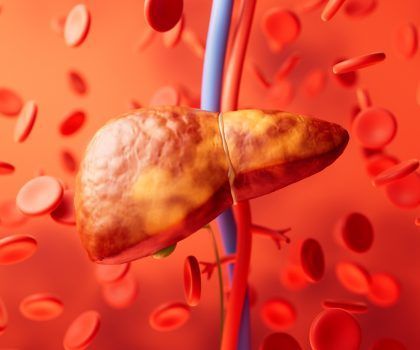Fighting Diabetes Naturally
November 8, 2022
This article originally appeared on TasteForLife.com.
Prevalence of Diabetes
More than 30.3 million individuals currently live with a diabetes diagnosis—with about 95 percent of them having Type 2, says Lucille Hughes, director of diabetes education at South Nassau Communities Hospital in Oceanside, NY.
Diabetes on The Rise
“Type 2 diabetes actually used to be extremely rare,” shares Jacob Teitelbaum, MD, author of the book Diabetes Is Optional (To Your Health Books, 2018).
The numbers started to skyrocket as a result of modern eating habits—culminating in the alarming fact that one-third of people will now develop Type 2 diabetes and its precursor, metabolic syndrome (which is the combination of high blood sugar, high cholesterol, and hypertension), in their lifetime, he adds.
But it doesn’t have to be this way.
Managing Diabetes Naturally
Diet and Lifestyle
Dietary changes and lifestyle adjustments can go far in managing and even reversing Type 2 diabetes.
“Proper meal planning along with physical activity has been proven to improve health and glucose control,” notes Hughes.
Even better? The combination of meals planned with diabetes in mind and incorporation of exercise leads to weight loss, which itself almost always allows for a decrease in reliance on diabetes medications.
That, of course, comes as “a welcome benefit, both financially and emotionally, for any person living with diabetes,” says Hughes.
Diabetes-Friendly Eating
Ready for some of the nitty-gritty details of a diabetes-friendly meal plan? Hughes offers three key tips to follow:
- Monitor Carbohydrates
- Carbohydrates boost blood glucose levels (which is not a good thing), so keep this number low.
- No Late-Night Snacking
- Limiting eating after dinner helps many people manage both their diabetes and their medication regime.
- Eat Frequently
- Don’t skip meals or go more than four hours without eating. Regular eating of small amounts helps maintain good glucose control.
Supplement Support
Vitamin D for Glucose Tolerance
Vitamin D should be on your radar.
There’s a solid body of research showing vitamin D improves glucose tolerance. This is because the body makes more insulin and responds better to circulating insulin when there’s enough vitamin D.
After two months of daily supplementation with 4,500 IU of vitamin D by people with Type 2 diabetes, researchers documented a significant drop in fasting blood glucose.
Chromium to Regulate Blood Sugar
The mineral chromium helps your body regulate blood sugar levels. It is part of glucose tolerance factor (GTF), which plays a role in helping insulin bring blood sugar into each body cell.
People without diabetes generally show higher blood levels of chromium than those with this disease.
Those who supplement with chromium (for example, by taking a multivitamin/mineral that includes chromium) are less likely to have diabetes.
Even more heartening? Those who already have diabetes but who start taking 600 micrograms of chromium picolinate daily improve their blood sugar control.
Hintonia latiflora
Dr. Teitelbaum’s favorite herbal treatment for diabetes is an herb called Hintonia latiflora. This herb, which is sometimes found under the name Sucontral D, comes backed by a growing body of research.
Blood Sugar Regulation
The herb delays the release of sugar into the bloodstream and keeps glucose levels low instead of allowing them to spike—a main cause of excessive insulin release, he explains.
Another benefit of Hintonia latiflora relates to reducing insulin resistance and inflammation.
But the greatest benefit, Dr. Teitelbaum contends, is the herb’s ability to “help maintain steady blood glucose levels throughout the day and night, thus contributing to long-term improvements in glucose control.”
Glycosylated Hemoglobin
In addition, studies show that Hintonia latiflora decreases glycosylated hemoglobin, which is just a complicated way of describing red blood cells combined with glucose.
When glycosylated hemoglobin goes up, it’s a sign that diabetes is poorly controlled. A lower glycosylated hemoglobin number means better diabetes control and better overall health.
Supplementing with
Hintonia latiflora could bring glycosylated hemoglobin down by nearly 1 percent, which Dr. Teitelbaum says, is “often enough to make the diabetes go away.”
Conclusion
“Our modern diet, high in sugar and low in fiber, is the fast lane to a diabetes epidemic,” says Dr. Teitelbaum.
What can you do to prevent Type 2 diabetes or work to make it go away if you have it?
- Lose Weight - Research shows that with adequate weight loss, 86 percent of diabetes cases can be eliminated.
- Exercise - Walk daily in the sunshine or find another exercise you love—preferably outdoors.
- Reduce Carbs - Decrease sugar and white flour but increase fiber. A ketogenic diet may be helpful. Consult with your healthcare practitioner.
- Supplement - Take a good multivitamin high in magnesium and vitamin D.
- Eat Nuts - Eat a half-cup of nuts daily to lower blood glucose.
Selected Sources:
“Beneficial effects of oral chromium picolinate supplementation on glycemic control in patients with Type 2 diabetes: A randomized clinical study” by A.N. Paiva et al., Journal of Trace Elements in Medicine and Biology, 2015
“The effect of vitamin D supplementation on glycemic control and lipid profile in patients with Type 2 diabetes mellitus” by M. Mohamad et al., Journal of the American College of Nutrition, 9/15
Personal communication: Lucille Hughes; Jacob Teitelbaum
“Risk of Type 2 diabetes is lower in US adults taking chromium-containing supplements” by D.J. McIver et al., Journal of Nutrition, 12/15
“The role of chromium III in the organism and its possible use in diabetes and obesity treatment” by S. Lewicki et al., Annals of Agriculture and Environmental Medicine











